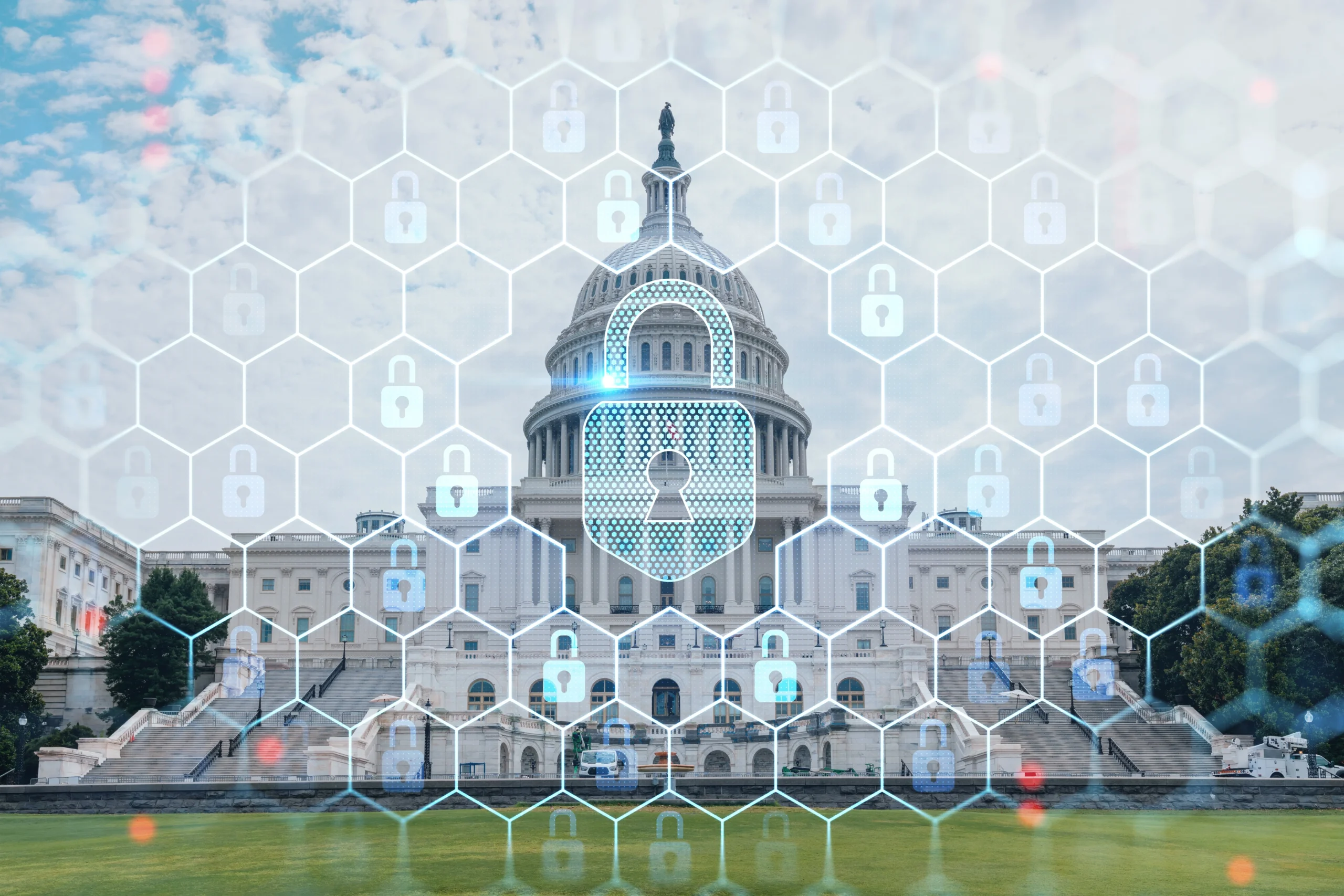Why cybersecurity deserves a place in the political spotlight

John E. Kaye
- Published
- Cybersecurity, Technology

Cybersecurity may not win elections, but it’s fundamental to national security, economic stability, and public trust. As cyber threats grow in scale and sophistication, businesses cannot afford to wait for political consensus or regulatory clarity. Steve Durbin, Chief Executive of the Information Security Forum, calls on leaders to take proactive steps to protect their assets, strengthen resilience, and ensure secure deployment of emerging technologies
Cybersecurity is critically important for organisations of all kinds and across all sectors including government. And yet, despite cybersecurity’s importance to national security and our daily lives, it tends to take a backseat, particularly in the political arena.
Why? Well, for one thing, cybersecurity isn’t a vote winner, so it doesn’t tend to rise to the level of rhetoric received by other issues—like immigration, or the economy, for instance. Yet, cybersecurity is critical to both.
It’s also a complex issue, especially in the United States where individual states take independent and distinct positions in terms of regulations. Companies need to have clear guardrails to operate within. Currently, state-level regulations simply make compliance entirely too challenging.
Yet technology underpins so much of the political and business infrastructure in the U.S. and a broad that it simply can’t go unchecked. While we talk about using technology to achieve efficiencies and advancements in fields like healthcare, for instance, we don’t hear enough about how that technology will be implemented within a strong security environment.
The Path Forward
More federal control over cybersecurity-related regulations would help strengthen cyber protection. The need for this protection is integrally tied to concerns over social media impacts on both security and the reliability of information and data.
As we’ve seen through the November election process and attempts by foreign governments and other players to influence election results, we must be continually vigilant—and encourage and teach our employees to be vigilant—about their media consumption.
We all need to build our own filters to distinguish between what is reality, or what we can trust, and what we can’t.
Government has an important role to play and certainly there has been a lot of talk and some efforts to better regulate social media companies. But businesses can’t just sit back and wait for this to happen. We all need to focus more on cyber resilience. Cyber threats are continuing to increase, and we must all be continually alert, and taking steps to proactively protect our data and assets.
A Role for Business
We all need to focus more on cyber resilience. Businesses need to do much more here as cyber threats continue to increase.
It’s not going to get any easier. It’s critical to plan for the eventuality of a cyberattack to safeguard company assets, enabling a company to uphold its commitment to serving stakeholders and sustaining growth.
Business leaders should be proactive in:
- Adopting a balanced focus on both short-term responsiveness and long-term planning for both quick adaptability to market changes and a strategic long-term vision for sustainable growth.
- Evaluating whether and where significant changes to their current business models are necessary in light of emerging technologies.
- Analysing cost structures in terms of human resources, operational expenses, and technology investments.
- Evaluating supply chain strength and adaptability in light of potential trade policy changes.
- Monitoring policy changes and market trends closely, while avoiding hasty decisions based on short-term fluctuations.
- Investing in a strong cybersecurity infrastructure and conducting regular risk assessments.
- Ensuring employees are continually trained and that they clearly understand their roles and responsibilities.
As technology is implemented, it’s important to proactively consider how it can be deployed securely. Moving forward, more collaboration between government and the private sector will be critical. A strategic approach to securing promising technology should be a business priority. That means ensuring there are people in government with experience in this area. And it means reaching out to form relationships between government and business leaders with an aligned focus on cybersecurity that transcends political differences and discord.
Further information

Steve Durbin is Chief Executive of the Information Security Forum, an independent association dedicated to investigating, clarifying, and resolving key issues in information security and risk management by developing best practice methodologies, processes, and solutions that meet the business needs of its members. ISF membership comprises the Fortune 500 and Forbes 2000.
Main Image: shutterstock
Sign up to The European Newsletter
RECENT ARTICLES
-
 Tech addiction: the hidden cybersecurity threat
Tech addiction: the hidden cybersecurity threat -
 Parliament invites cyber experts to give evidence on new UK cyber security bill
Parliament invites cyber experts to give evidence on new UK cyber security bill -
 ISF warns geopolitics will be the defining cybersecurity risk of 2026
ISF warns geopolitics will be the defining cybersecurity risk of 2026 -
 AI boom triggers new wave of data-centre investment across Europe
AI boom triggers new wave of data-centre investment across Europe -
 Make boards legally liable for cyber attacks, security chief warns
Make boards legally liable for cyber attacks, security chief warns -
 AI innovation linked to a shrinking share of income for European workers
AI innovation linked to a shrinking share of income for European workers -
 Europe emphasises AI governance as North America moves faster towards autonomy, Digitate research shows
Europe emphasises AI governance as North America moves faster towards autonomy, Digitate research shows -
 Surgeons just changed medicine forever using hotel internet connection
Surgeons just changed medicine forever using hotel internet connection -
 Curium’s expansion into transformative therapy offers fresh hope against cancer
Curium’s expansion into transformative therapy offers fresh hope against cancer -
 What to consider before going all in on AI-driven email security
What to consider before going all in on AI-driven email security -
 GrayMatter Robotics opens 100,000-sq-ft AI robotics innovation centre in California
GrayMatter Robotics opens 100,000-sq-ft AI robotics innovation centre in California -
 The silent deal-killer: why cyber due diligence is non-negotiable in M&As
The silent deal-killer: why cyber due diligence is non-negotiable in M&As -
 South African students develop tech concept to tackle hunger using AI and blockchain
South African students develop tech concept to tackle hunger using AI and blockchain -
 Automation breakthrough reduces ambulance delays and saves NHS £800,000 a year
Automation breakthrough reduces ambulance delays and saves NHS £800,000 a year -
 ISF warns of a ‘corporate model’ of cybercrime as criminals outpace business defences
ISF warns of a ‘corporate model’ of cybercrime as criminals outpace business defences -
 New AI breakthrough promises to end ‘drift’ that costs the world trillions
New AI breakthrough promises to end ‘drift’ that costs the world trillions -
 Watch: driverless electric lorry makes history with world’s first border crossing
Watch: driverless electric lorry makes history with world’s first border crossing -
 UK and U.S unveil landmark tech pact with £250bn investment surge
UK and U.S unveil landmark tech pact with £250bn investment surge -
 International Cyber Expo to return to London with global focus on digital security
International Cyber Expo to return to London with global focus on digital security -
 Cybersecurity talent crunch drives double-digit pay rises as UK firms count cost of breaches
Cybersecurity talent crunch drives double-digit pay rises as UK firms count cost of breaches -
 Investors with €39bn AUM gather in Bologna to back Italy’s next tech leaders
Investors with €39bn AUM gather in Bologna to back Italy’s next tech leaders -
 Axians and Nokia expand partnership to strengthen communications infrastructure across EMEA
Axians and Nokia expand partnership to strengthen communications infrastructure across EMEA -
 Forterro buys Spain’s Inology to expand southern Europe footprint
Forterro buys Spain’s Inology to expand southern Europe footprint -
 Singapore student start-up wins $1m Hult Prize for education platform
Singapore student start-up wins $1m Hult Prize for education platform -
 UK businesses increase AI investment despite economic uncertainty, Barclays index finds
UK businesses increase AI investment despite economic uncertainty, Barclays index finds



























